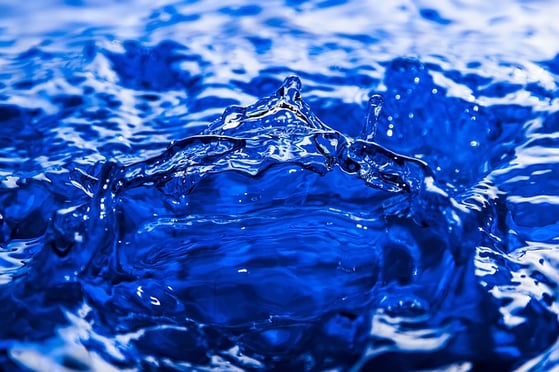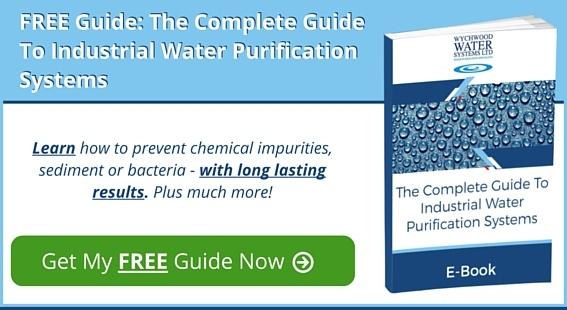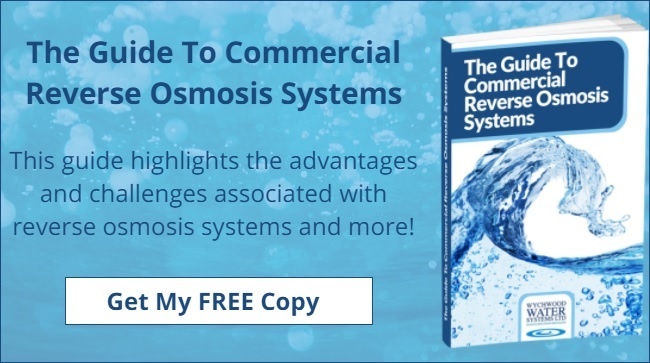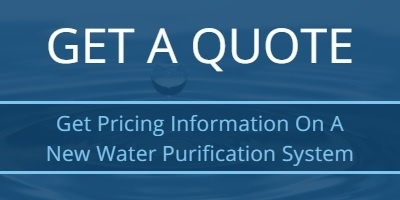
Getting the quality of manufacturing water you need for your food or drink manufacturing facility can be a challenge on even the best of days. You may have recently expanded into the manufacture of new food or drink products, or you may just wish to improve the quality of water you use. Regardless, your choices for the purification of water will come down to two methods: reverse osmosis (RO), and deionisation (DI).
When it comes to choosing one or the other, it can help to know the differences between RO water vs. DI water.
Industrial Reverse Osmosis (RO)
Industrial RO can remove a wide range of contaminants from water. Feed water enters the RO system and is pressed through a semi-permeable membrane. It flows across the membrane in such a way as to stir up the water and all of the contaminants within. These contaminants then attach themselves to the membrane, where they remain. Purified water then passes through to the membrane’s other side.
This process is incredibly effective where the removal of large ethanol, mineral salt and organic compounds is required. Not only that, but the process also ensures the removal of these contaminants at the ion level. The industrial RO process is ideal where your facility’s water has a high Total Dissolved Solids (TDS) level. Depending on what your facility manufactures, Industrial RO may or may not remove the desired amount of bacteria for your facility’s needs
An industrial RO system will need to be cleaned on a regular basis to ensure the continued purity of water for food and drink manufacturing purposes. Complete system cleaning will need to take place at regular intervals, as well as membrane cleaning. A series of chemicals will need to be applied to membranes to ensure thorough cleaning. Finally, bacterial contamination is a constant threat to RO systems, and so many areas of the system will need to be monitored, including system temperature and flow rates.
Unfortunately, industrial RO is not always the best option for food and drink manufacturing, as it cannot effectively remove high amounts of bacteria, barium or silica. These have to be removed through chemical purification either before or after reverse osmosis, which can make the water unsuitable. Where the purity of water needs to be assured, industrial deionisation can offer a much higher quality of water.
Industrial Deionisation (DI)
High quality deionised water is the standard for most food and drink manufacturing processes. This is because it doesn’t require chemical pre-treatment to rid the water of bacteria and organic compounds.
Industrial DI uses electrically charged resins to clean the water which passes through it. The water passes through two resin chambers. The first chamber removes all of the water’s cations, whilst the second removes all of its anions. The result is water with a completely neutral chemical profile.
DI also requires no chemicals to clean the system, as an electrical charge can be used to remove residual contaminants. These systems cost less to operate than their industrial RO counterparts, and are also able to purify water with a wide variety of contaminants. In addition, they waste far less water than other treatment methods.
Continuous Electro-Deionisation (CEDI)
Continuous electro-deionisation works in the same way that regular deionisation does, except that it uses electrically charged anion and cation membranes rather than the traditional ion exchange resins. The advantage is that an in-house CEDI system can provide continuous supply of de-ionised water as it is needed.
Despite is effectiveness, the quality of feed water is extremely important with CEDI systems.
Should feed water flow into the system untreated, bacterial contamination and system downtime could result. Water is therefore pre-treated with reverse osmosis. This is the only way to achieve consistently bacteria-free water with this particular method.
CEDI is commonly used by the medical and power-generation industries, but less so by food and drink manufacturers.
Learn More About The Benefits of Industrial DI
Your facility needs water that’s clean and pure, and industrial deionisation can ensure that this water is available on demand. You can learn more about the benefits of industrial deionisation, as well as how to keep your DI system healthy by downloading our free eBook, Guide to Industrial Water Purification Systems. This resource, created by our team of experts here at Wychwood, tells you all you need to know about affordable water purification for your facility. Our team is also available to answer your questions about industrial DI; simply get in touch by phone on 01993 892211, or by email at sales@wychwood-water.com.









 We are a specialist independent company involved in water purification and water treatment technologies
We are a specialist independent company involved in water purification and water treatment technologies


